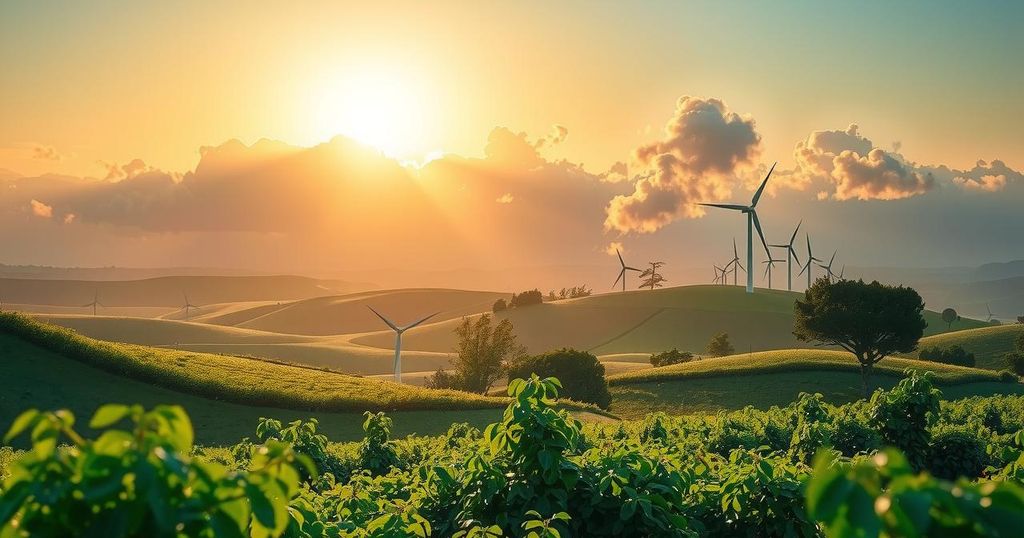Andre Correa do Lago, president of COP30, urges countries to set ambitious emissions reduction targets before the February 10 Paris accord deadline. The conference, hosted in Brazil, will focus on the Amazon’s climate significance and aims to increase financial support for developing nations while addressing the complex relationship with fossil fuel exploration under the current Brazilian administration.
In an interview with AFP, Andre Correa do Lago, the president of COP30, emphasized the importance of setting highly ambitious targets for greenhouse gas emissions reductions. With the February 10 deadline approaching for new goals under the Paris accord, key nations like the EU and China have yet to disclose their commitments. Correa do Lago stated that targets should surpass prior ambitions to support efforts in limiting global warming to 1.5 degrees Celsius, highlighting the significance of timely and bold climate actions from all countries.
Scheduled to take place in Belem, Brazil, COP30 marks a pivotal moment as the conference will focus on the Amazon region’s crucial role in global climate politics. The backdrop includes the challenges posed by the previous US administration’s withdrawal from the Paris agreement and an intensified focus on fossil fuels. Correa do Lago expressed optimism in reopening dialogues with the US on climate engagement through platforms such as the G20.
The latest COP in Azerbaijan resulted in wealthier nations agreeing to disperse $300 billion annually to assist developing regions disproportionately affected by climate change. However, Correa do Lago acknowledged that these figures are insufficient and suggested a potential increase of financial resources to $1.3 trillion. Negotiations are ongoing regarding the new Paris accord commitments, and Brazil, alongside Azerbaijan, has a mandate to explore ways to enhance funding.
Under the leadership of President Luiz Inacio Lula da Silva, Brazil aims to lead global climate initiatives while balancing its status as a significant oil producer. Although Brazil has successfully decreased Amazon deforestation rates, domestic criticisms persist concerning oil exploration, especially in ecologically sensitive offshore areas. Correa do Lago noted that the energy transition varies country by country, with unique pathways and challenges that must be acknowledged in pursuit of sustainable development.
The content discusses the upcoming COP30 climate conference, highlighting the urgency for countries to establish ambitious greenhouse gas emissions targets as part of their commitments under the Paris climate accord. This conference, taking place in a critical environmental region, the Amazon, signifies a collective effort to confront climate change even amid geopolitical complexities, particularly concerning the United States and funding disparities between rich and developing nations.
In conclusion, COP30 serves as a crucial platform for reinforcing global commitments to climate action, urging nations to proactively set higher emissions targets. As Brazil hosts the conference, discussions will center around enhancing financial assistance for climate-adaptive measures in developing countries, while addressing the significant policy shifts required to effectively manage energy transitions within diverse national contexts.
Original Source: www.france24.com






